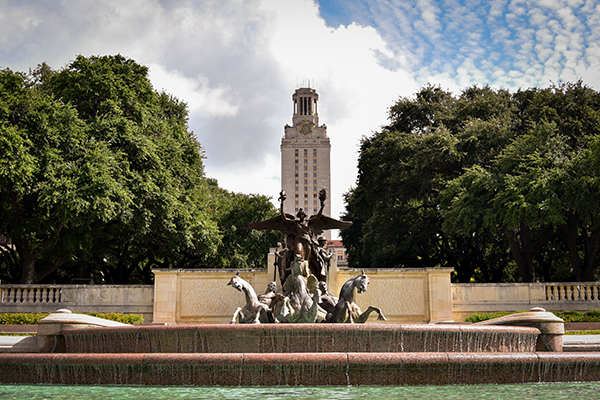The American Physical Society recently recognized a UT professor of molecular evolution as one of their 2019 fellows.
Claus Wilke said he was nominated by the Division of Biological Physics within the society and was given the fellowship in October. Associate physics professor Vernita Gordon said Wilke got his nomination for his studies of protein biophysics and molecular evolution.
Gordon said half of 1% of society members receive fellowships every year based on notable research findings in their field of study. Gordon also said 168 fellows were selected this year, and seven of these fellows were nominated within the biophysics field.
“(Wilke) is really deserving of this award,” Gordon said. “There’s stuff to back up why they have made contributions at a level significant enough that they should be recognized as an APS fellow.”
Wilke said his research identifying the primary driver of protein sequences, or sequences of organic compounds known as amino acids, kick-started his nomination from the division. He said his research combined physics and biology to showcase the functions of protein folding and the advancement of genetic sequences.
Wilke said he researched genetic mutations and patterns visible in the evolution of genomes, or an organism’s genetic material, related to mutation structures. He said he studied the areas where more harm is caused from mutation and how it would affect the shape of protein sequences.
“Everybody knows Jenga,” Wilke said. “So there’s pieces that you just take out, and nothing is going to happen because the tower is stable, but there’s other pieces that after a while you can’t touch them because the whole thing would fall. So, what I’m doing is a lot like that. I’m trying to figure out which are the (proteins) that can be changed and which parts can’t.”
Nursing freshman Margarita Ramirez said she is becoming aware of the topics Wilke researched and how they compare to previous biophysics research.
“It’s good that he got awarded for (sequences) because it’s something having to do with evolution, and not a lot of people are looking into proteins,” Ramirez said. “His study is very unique compared to other biological professionals because it’s not just looking at DNA. It’s looking deeper.”
Wilke will be presented with the award in March 2020 during an annual ceremony where the society hosts fellows and other contributors to the study of physics.





















